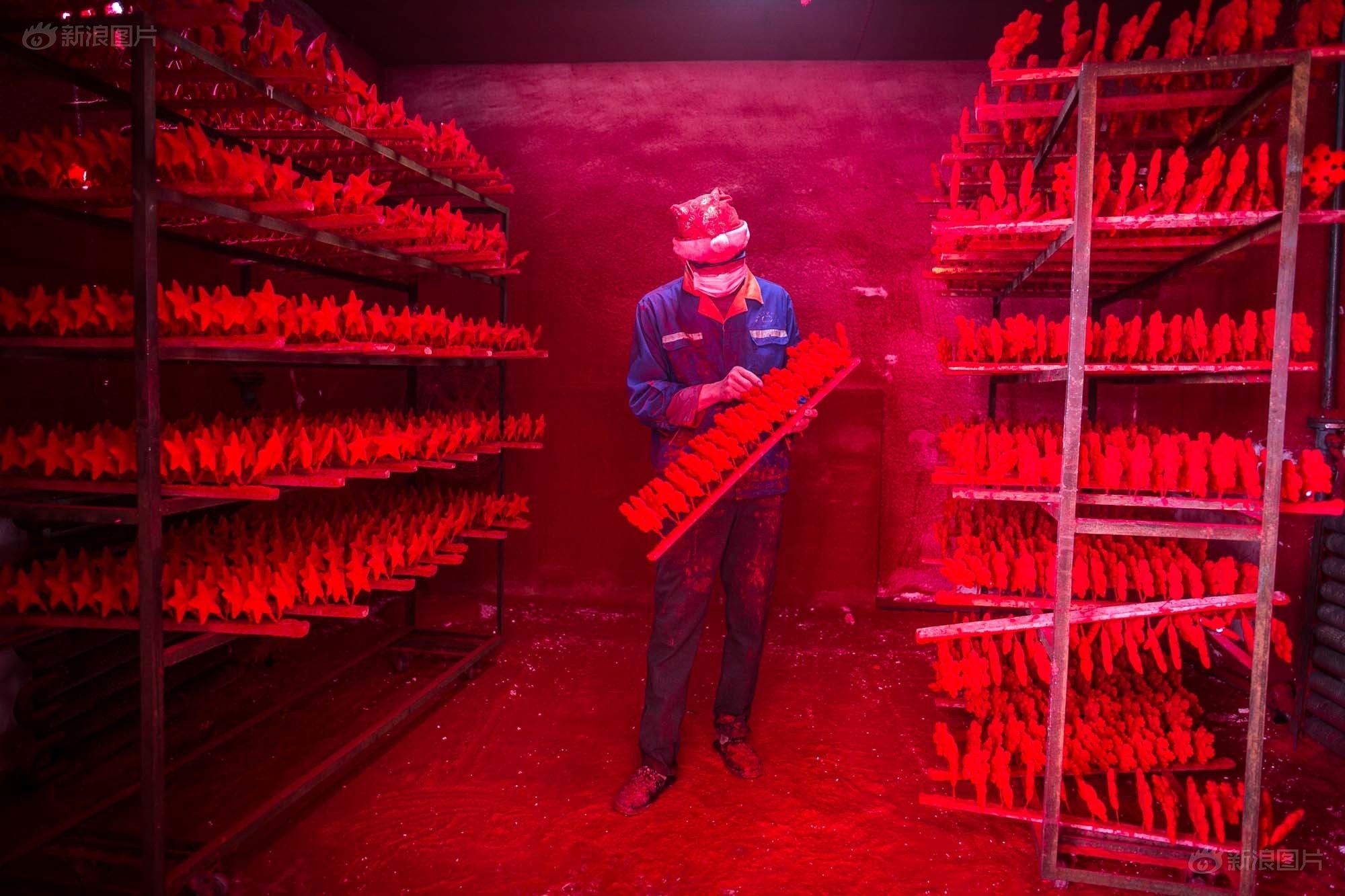Since undergoing expensive plastic surgery six months ago, 18-year-old Wang Wei contemplates suicide on a regular basis. He has even threatened his own doctor: “The worst thing I could do is kill myself – but you will pay for that, I assure you.”
Up until last year, Wang was a fashion model working four to five days a week, earning RMB2,000 a time for magazine and Taobao.com shoots. “My looks are the most important thing in the world to me,” he says – and he figured the next step was to improve them.
A friend suggested a form of surgery known as ‘orbital decompression,’ saying that if his eyes more closely resembled those of Hong Kong actor Guo Fucheng (better known as Aaron Kwok), it would aid his career.
Orbital decompression is an extreme procedure normally only used to treat exophthalmos, a condition characterized by excessively bulging eyes; it involves removal of small amounts of bone and fat from the sockets, allowing the eyes to sit further back in the head so that they do not protrude.
A succession of hospitals declined to perform the operation, pointing out that Wang did not suffer from any medical condition that would require it. But an online advert gave Wang hope: Dr. Xia Chengjun claimed to work for a famous hospital in Shenyang, and promised a hassle-free, tailored service.
“The happiness of realizing my dream made me lose my mind,” Wang now admits. “I should have been more careful. Now it’s too late.”
After Dr. Xia recommended a blepharoplasty, Wang underwent two procedures, but during recovery felt that something was wrong. When the day came to remove the bandages, Wang was shocked.
“I had the eyes of an old man from a comic book,” he recalls. “I asked the doctor, ‘Where are my European-style eyes?’” The doctor repeated the same mantra over the next six months: “They are still recovering.”
In fact, it later emerged, the doctor had not performed orbital decompression surgery, but simply liposuction. The effect was devastating to Wang. “The eyes are the window to the soul… I am now totally disfigured.” Wang says Dr. Xia refuses to discuss the case but the doctor denies this.

Wang Wei before the operation...
“Normally it takes six months to recover but since Wang is a model, and didnt rest well, or sleep enough, I guess it will take longer,” Dr. Xia argues. “I dont know how long.”
Wang may be one of the luckier ones, however.
The perils of China’s newborn passion for cosmetic surgery were first highlighted in 2010 by the death of Wang Bei, 24, a contestant on hit Hunan reality show Super Girl known for her good looks, who nevertheless elected to go under the knife in for “facial bone-grinding surgery” to taper her jawline.
According to Xinhua, an “anesthetic accident” occurred at the Zhong Ao Cosmetic Surgery Hospital in Wuhan, where Wang was receiving her treatment: her jaw began bleeding during the procedure, causing her to suffocate.
The bizarre tragedy shocked young web users, who criticized both the unnecessary nature of the surgery and the lack of regulation. “I hope the tragedy can raise people’s awareness of the slack supervision of the industry,” one wrote.
According to Zhao Zhenmin, Secretariat of the Chinese Association of Plastics and Aesthetics (CAPA), while cosmetic clinics are not allowed to conduct any surgery by law, some are doing so illegally, and are responsible for many of the botched operations. When things do go wrong, cosmetic clinics are not equipped to respond.
“It’s highly dangerous to have surgery done at these places,” Zhao told China Youth. “They are usually under-qualified on the materials, equipment, hygiene procedures, processes and other technical specs.”
Botox, for example, should only be purchased from certified suppliers, and its transportation, storage and usage requires strict supervision. But an untrammeled demand has led untrained doctors to start carrying out “risky and irresponsible” operations, as Zhang Huabin, a professor of plastic surgery at Guangdong Medical College explained to the Sydney Morning Herald.
The Shanghai Daily reported in May on one such case after 20-year-old Liu visited an illegal clinic in Huangpu for rhinoplasty. She was instead given two shots of collagen in her nose, which blocked veins, causing her to lose the sight in one eye. Police later arrested the ‘surgeon,’ Huang, who admitted to having no medical license, instead simply turning a small, rented apartment into a fake clinic using basic equipment and skills gleaned from the Internet.
Even highly complicated procedures, like leg lengthening are taken on by cowboys. One Chongqing woman, Zhang Wen, discovered she was just four centimeters short of the 1.6-meter minimum to be an Air China flight attendant – her dream job. She paid RMB20,000 to a clinic who bungled the surgery, leaving her with a debilitating limp but without the money to correct it.
Some clinics employ foreign doctors to boost their credibility (and prices), but this is no guarantee of safety. Between 2004 and 2007, hundreds of expats and Beijingers paid visits to an American physician practicing at a new clinic just a short walk from the Great Hall of the People, and spread word about his affordable prices.
By 2006, word was also spreading that the American advertising himself as “Dr. Michael Gabriel” of the Confidant Medical Clinic in Wangfujing, bore a startling resemblance to one Steven Gabriel Moos, a wanted fugitive and “lifestyle practitioner” who fled Oregon, USA, following a federal indictment on “multiple criminal charges, including the unlawful importation of misbranded drugs and human growth hormone; falsifying information submitted to the Drug Enforcement Administration (DEA); and unlawfully obtaining controlled substances.”

Gabriel Moos, aka Stephen Hopping, aka Prisoner #2345673
Moos departed Beijing in 2007 and was arrested in Dubai two years later, where he was found to have been practicing surgery in his kitchen and storing liposuctioned fat in water bottles.
The CAPA’s Zhao says that ‘xenocentrism’ is a major problem in the industry. Many consumers blindly trust doctors, especially foreign ones, and believe that not only are all pretty Korean women the result of surgery, but that Korean techniques are better.
“Many clinics hire some Korean people and equipment and simply claim they’re experts using top-range technology,” Zhao says. “In fact, many are not qualified at all and following their suggestions can be hazardous.”
Zhao says that government regulations need to focus on reining in false advertising, especially online, as this is where most customers get their information. Portal sites feature “exaggerated claims with wording like ‘most authentic,’ ‘most effective,’ ‘China’s best.’ Many profitable clinics also use the names of public hospitals to promote themselves too.” Secondly, regulators should publish lists of certified clinics and surgeons for public reference.
“Last but not least,” concludes Zhao, “cooperation across different government departments is very important, as plastic surgery clinics are governed by the Ministry of Health while regular cosmetic clinics come under the Industrial and Commercial Administrations, which enables [them] to evade supervision.”
Any regulations will come too late for people like Wang. Having paid RMB20,000 for the disastrous surgery, he says his modeling career is ruined.
“I think there will be less and less jobs out there for me,” he says. “Those who called me for work after the plastic surgery never called me again. And I have no new clients.” Wang partly blames his parents – his father encouraged him to trust the doctor “as he is such an expert” – and relations have soured at home.
Wang is rare in coming forward about his experience. Some refuse to even acknowledge surgery. One businessman in Beijing argued with his girlfriend, a 22-year-old BTV presenter, about her over-extensive breast-augmentation efforts. “She denied having had implants and said [the growth] was a side-effect of emergency heart surgery,” he recalls, incredulous.
According to the Meika plastic surgery hospital in Beijing, there is no way to create the “European-style eyes” that Wang desired, because Chinese skulls are significantly different from Caucasian ones. But the Langli hospital, who refuse to accept any liability, have a different answer for Wang: they say his eyes look better than ever before.
// Research by Karoline Kan
Follow us on twitter @thats_beijing






















0 User Comments